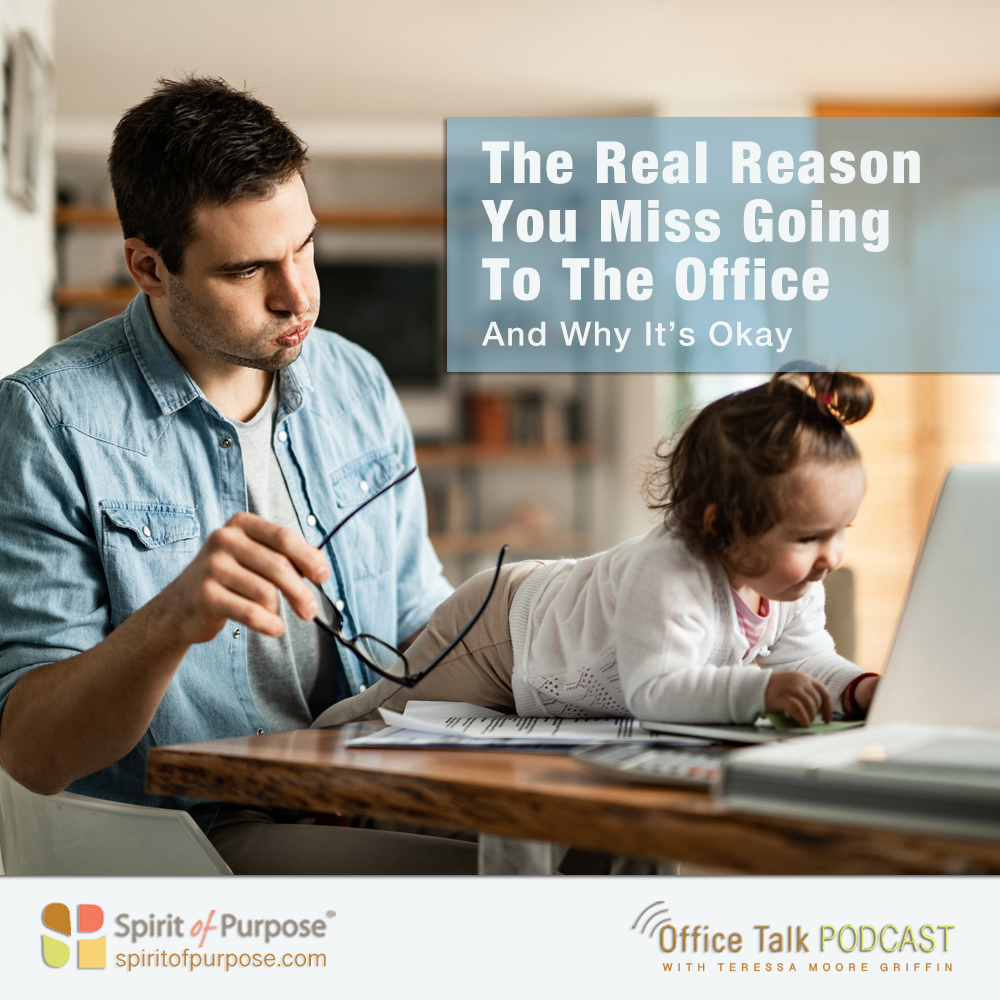PODCAST: Why You Miss the Office and What to Do About It
If you went to an office or another workplace every day, one of the things you may have taken for granted is the opportunity to switch gears. According to the Wall Street Journal, many people are experiencing a lack of separation between their home and work lives. Some are fondly remembering the respite their commute provided, or longing for their favorite coffee shop where they picked up their morning cup of java or had afternoon tea break.
It’s all understandable. For parents who are finding it hard to create necessary separation between themselves and their children, who now also need their attention, the office was a place that defined the me-at-work and made the boundary between work and home more seamless.
We were all accustomed to our life’s rhythm that the abrupt changes related to social distancing and work-from-home has shifted. These unforeseen compulsory changes carry a bigger sense of loss for some than it does for others. To address this, one manager gave in to a stressed working mother by letting her go into the empty office periodically just to restore her sense of normalcy.
This time of sheltering-in-place has had its impact on everyone, those who live with others, and those who live alone.
Some people who live alone feel they’re expected to be on the clock 24/7. Some workers say they feel bosses who know their employees aren’t going anywhere or engaging socially are taking advantage of the moment. In the article, one manager noted that even those who independently chose to work extra hours looked tired and on the verge of burnout.
The Wall Street Journal offered a few solutions to this new and widening problem.
- Block out times on your calendar when you’re off. Include breaks and time reserved for personal needs. Your routine of work time and personal time doesn’t have to change just because your workspace has. Coordinate your availability with colleagues who may need to connect. Build in sufficient flexibility on your calendar – especially if you’re also managing children who are very young, home-schooling and overseeing distance learning, caring for an ill or aging relative, etc.
- Create a ritual to mark the beginning of each workday and one to mark its end. Do something that signals that the day has officially started or ended. Your commute may have been that signal before. Consider replacing it with a daily walk, by calling a friend, by turning out the light and shutting the door to your workspace, turning on the news, watering the plants, taking Fido for a walk, or by having a special activity with the kids.
- Find a third space. If you can’t go to a coffee shop, designate a retreat room in your home and let your family know you’re unavailable. You may want to check if they need anything first to reduce the chance of interruptions.


